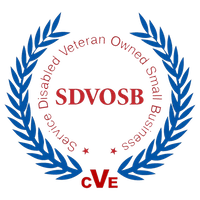Are you an active listener? Do you treat your teammates with dignity and respect? Do you believe that “two heads are always better than one?” Do you encourage open and respectful dialogue within your team?
Listening is a learned skill and sadly, most leaders are very poor listeners. According to Ernest Hemingway: “When people talk, listen completely. Most people never listen.” Malcom Forbes wisely observed that “The art of conversation begins with listening.”
The solution is to learn how to be an “active listener”. Similar to decentralization, active listening requires an element of personal risk that most leaders are reticent to embrace. With decentralization comes the risk of failure. Similarly, by being an active listener, we risk being changed ourselves. According to Carl Rogers and Richard Farson, “It takes a great deal of inner security and courage to be able to risk one’s self in understanding another.”
In our experience, “two heads are always better than one.” In combat, the commander and operations officer must be mentally aligned to compare notes and consider other points of view. Decisions of this nature are too important to leave to one person, no matter how senior or experienced. In the military decision making process, at least two very different courses of action are developed by the planning staff for consideration. At no point in the process is it assumed that the commander is all knowing and omniscient. The successful commander actively listens to his or her team to incorporate a wide range of opinions and recommendations into the final decision. The final decision is made by the commander, but the process to get there involves the free and objective sharing of ideas by a number of people. The same is true in business where the risk of failure is different, but every bit as impactful.
At the end of the day, team members who are listened to feel valued and are less defensive. They feel empowered and are committed to the organization. Listening reduces the threat of being criticized and enables team members to feel valued and enabled. Listening strengthens the team’s communications and is a prerequisite to decentralization and empowerment.
How much of your day do you spend listening? Most successful senior leaders spend at least 50% of their day listening to the views of their teammates. Wow! That means they are not talking or writing emails, they are listening. If you are like us, that’s almost counterintuitive. If we are smart enough to become the senior leaders, we should be talking or writing, shouldn’t we? Truth of the matter is, the buy in and creativity we gain from soliciting the input of others is far more valuable than what we can offer from just transmitting. That may be deflating to your ego, but it’s true.
Active listening requires commitment and a great deal of practice. Level Five leaders listen for both content and emotion. It requires identifying non-verbal cues that are often more important than the content of the message. It requires empathy or the ability to put yourself in the shoes of your teammate. You have to focus. Put the hand held device down when you have a conversation; it makes a difference.
What kind of a listener are you? Are you prepared to risk your ego to build a high performing team where your team is empowered and opinions and views really matter? Are you open minded and willing to consider others’ ideas? Are you willing to learn how to be a better listener?
This is hard work and an important part of the journey to become a Level Five leader. Saddle up and let’s make the journey together!





